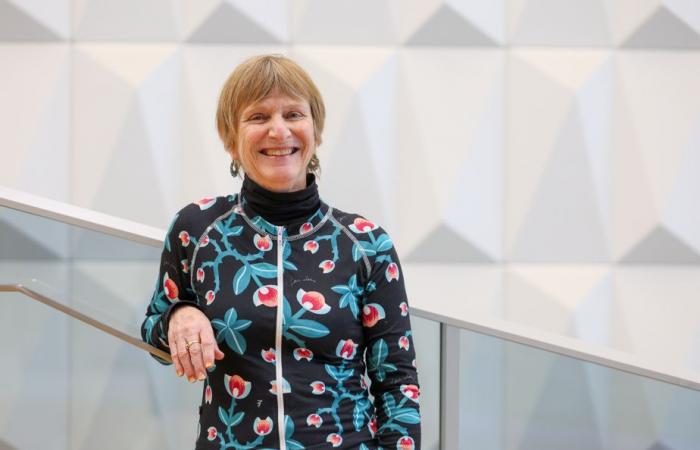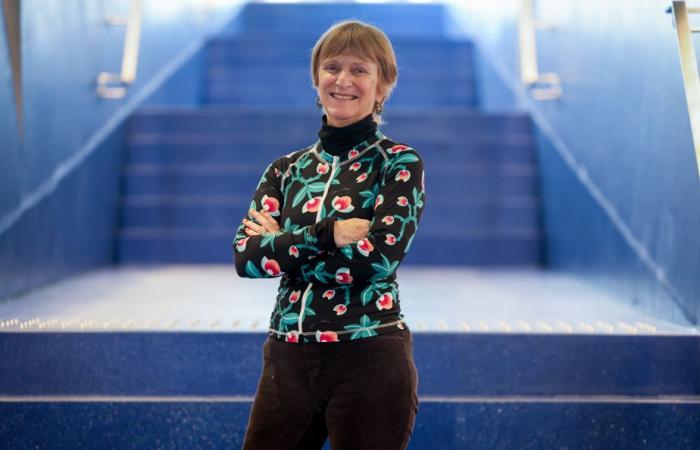Little known to the general public, Quebec biologist Catherine Potvin likes to compare her story to that of Obélix, who fell into the magic potion when he was little. But her potion is climate change.
Published at 5:00 a.m.
Combining science and politics, her career has taken her from Quebec to Panama, the country she represented during international climate negotiations.
After three years of being involved voluntarily within the advisory committee on climate change formed by the government of Quebec, Catherine Potvin decided to leave the committee at the end of summer 2024. Frustrated to see that the results were not not there, she preferred to bow out and regain her “freedom of speech”.
“I understand that it is not up to us, the scientists, to decide for society. I’m very comfortable with that. On the other hand, I, as a scientist, must be able to continue to say that there is an emergency [face aux changements climatiques]. I think that there is still a majority of the population for whom it is important to have scientists, people of integrity, who tell us: this is what we see with our observations,” affirms the new retiree from the McGill University.
If Catherine Potvin is today an internationally renowned specialist for issues affecting the tropical forest and climate change, she owes it to a chance encounter with carbon dioxide, “this gas which traps heat”, sums up. it, and whose concentration in the atmosphere has been increasing continuously since 1850.
“Climate change happened on its own, without my choosing,” she recalls.
As a young biologist in the early 1980s, Catherine Potvin found herself measuring the photosynthesis of the leaves of various plants with a device that records the ambient temperature and the concentration of carbon dioxide.
“It starts at 345 [parties par million] of carbon dioxide the first year we take our measurements. The next year it’s 346, and the year after that it’s 347, and I think I have a problem with my device. But everyone was experiencing the same thing, getting the same measurements. The problem was in the atmosphere,” she relates.
This is how she found herself faced with the issue that would occupy her entire career for the next 30 years.
PHOTO FRANÇOIS ROY, THE PRESS
The biologist Catherine Potvin
I’m a bit like Obelix! He fell into the magic potion when he was little, and I fell into climate change!
Catherine Potvin
After a bachelor’s and master’s degree in biology at the University of Montreal, Catherine Potvin mainly worked in the laboratory, where she was interested in the ways in which plants acclimatize to their environment. To continue her research on this subject, she enrolled in a doctorate in botany at Duke University in North Carolina.
Trip to the tropics
After completing her studies in 1985, she taught a course at McGill University on conservation biology and endangered species. But imposter syndrome caught up with her. “I had never been to the tropics because I was so afraid of snakes! But 50% of biodiversity is found in the tropics. I taught on this, but I was not competent, I did not understand these issues…”
She then headed to Panama with her three young children aged 5, 7 and 8, and ended up, in 1993, at the Smithsonian Tropical Research Institute. “It was one of the most important research centers in the world,” she comments.
Once she arrived in the capital, Panama, Catherine Potvin made another decision that marked her forever.
She went to Darién, a mythical region where we find the Emberá community, an indigenous people who paint their bodies blue and live completely on the fringes of Western society.
She fell in love with the forest and its people. Panama has become, in a way, his second home. She has returned so often that she says she is unable to count the number of times she has visited this small country of 4.5 million inhabitants.
In defense of Panama
In addition to continuing her research in the field, she quickly became an essential expert on everything related to the tropical forest. Shortly before the Montreal Conference on Climate Change in 2005, the government of Panama approached her to join its team of negotiators.
“They said to themselves: ‘We know Catherine Potvin, who works in Panama, who is interested in climate change, the carbon cycle and the forest. She speaks French, English and Spanish. She comes from Montreal, it won’t cost plane tickets or hotels!” »
It was a good calculation on their part, but it was also a big vote of confidence! It was a huge job, I have never worked so hard in my life.
Catherine Potvin, biologist
For six years, McGill University allowed him to work part-time as head of international climate negotiations for the government of Panama. “I was responsible for the forest component and I found myself facing Canada, and my job was to defend the interests of Panama! »
Today, she says she is particularly proud to have contributed to the recognition of Indigenous people in international climate agreements. “It’s important to listen to what Indigenous people have to say about the forest. In Latin America, most of the forests that are still intact are managed by indigenous people. »
A reflection which deserves to be broadened, according to her, to better deal with global warming. “The Western world could learn a lot from traditional indigenous societies, whether in Quebec, Canada or Panama. These are very collective societies where the common good is the norm. Unfortunately, our modern societies have evolved in a very individualistic way. This does not go at all with solutions to climate change, which must be collective. Community is the only way to get through this. »
Who is Catherine Potvin?
- Born in 1963 in Saint-Hyacinthe
- Biologist specializing in the study of tropical forests
- She is particularly interested in the carbon cycle and the impacts of climate change.
- She represented Panama for six years in international climate negotiations.







